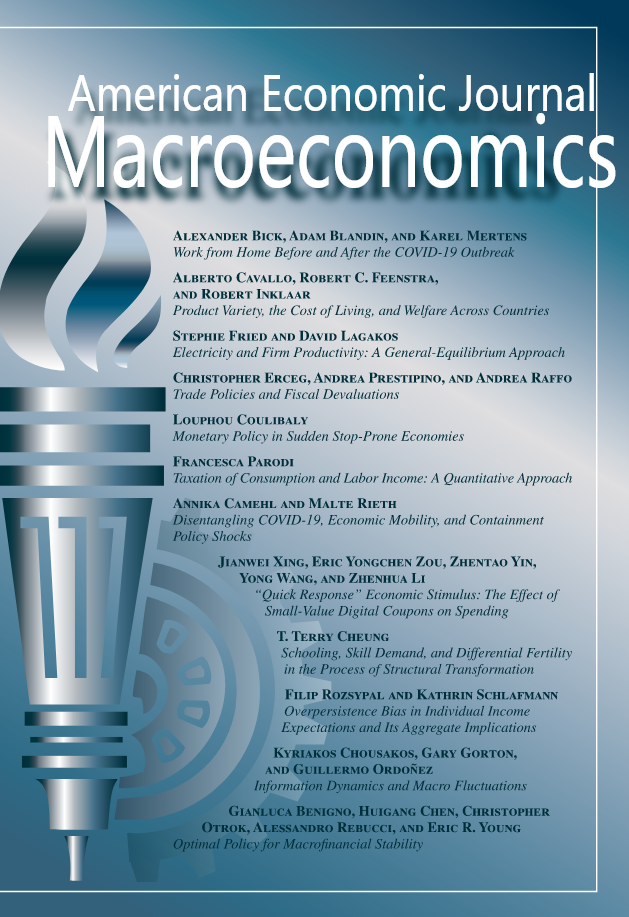评估电子商务的收益
IF 5.7
1区 经济学
Q1 ECONOMICS
引用次数: 2
摘要
电子商务在美国消费支出中所占的份额正在迅速增长。我们使用Visa, Inc.在2007年至2017年间的信用卡和借记卡交易级数据来量化由此产生的消费者剩余。我们估计,到2017年,电子商务将达到消费的8%,相当于为他们的消费增加1%,或每个家庭每年超过1000美元。虽然部分收益来自于避免了当地商家的旅行成本,但大部分收益来自于替代了可以在网上买到但不在当地买到的商家。收入越高的消费者获益越多,人口越稠密的县的消费者也是如此。(jel d12, e21, g51, l81, l86)本文章由计算机程序翻译,如有差异,请以英文原文为准。
Assessing the Gains from E-Commerce
E-commerce represents a rapidly growing share of consumer spending in the United States. We use transactions-level data on credit and debit cards from Visa, Inc. between 2007 and 2017 to quantify the resulting consumer surplus. We estimate e-commerce reached 8 percent of consumption by 2017, yielding the equivalent of a 1 percent boost to their consumption, or over $1,000 per household per year. While some of the gains arose from avoiding travel costs to local merchants, most of the gains stemmed from substituting to merchants available online but not locally. Higher income consumers gained more, as did consumers in more densely populated counties. (JEL D12, E21, G51, L81, L86)
求助全文
通过发布文献求助,成功后即可免费获取论文全文。
去求助
来源期刊

American Economic Journal-Macroeconomics
ECONOMICS-
CiteScore
8.20
自引率
1.70%
发文量
58
期刊介绍:
American Economic Journal: Macroeconomics focuses on studies of aggregate fluctuations and growth, and the role of policy in that context. Such studies often borrow from and interact with research in other fields, such as monetary theory, industrial organization, finance, labor economics, political economy, public finance, international economics, and development economics. To the extent that they make a contribution to macroeconomics, papers in these fields are also welcome.
 求助内容:
求助内容: 应助结果提醒方式:
应助结果提醒方式:


